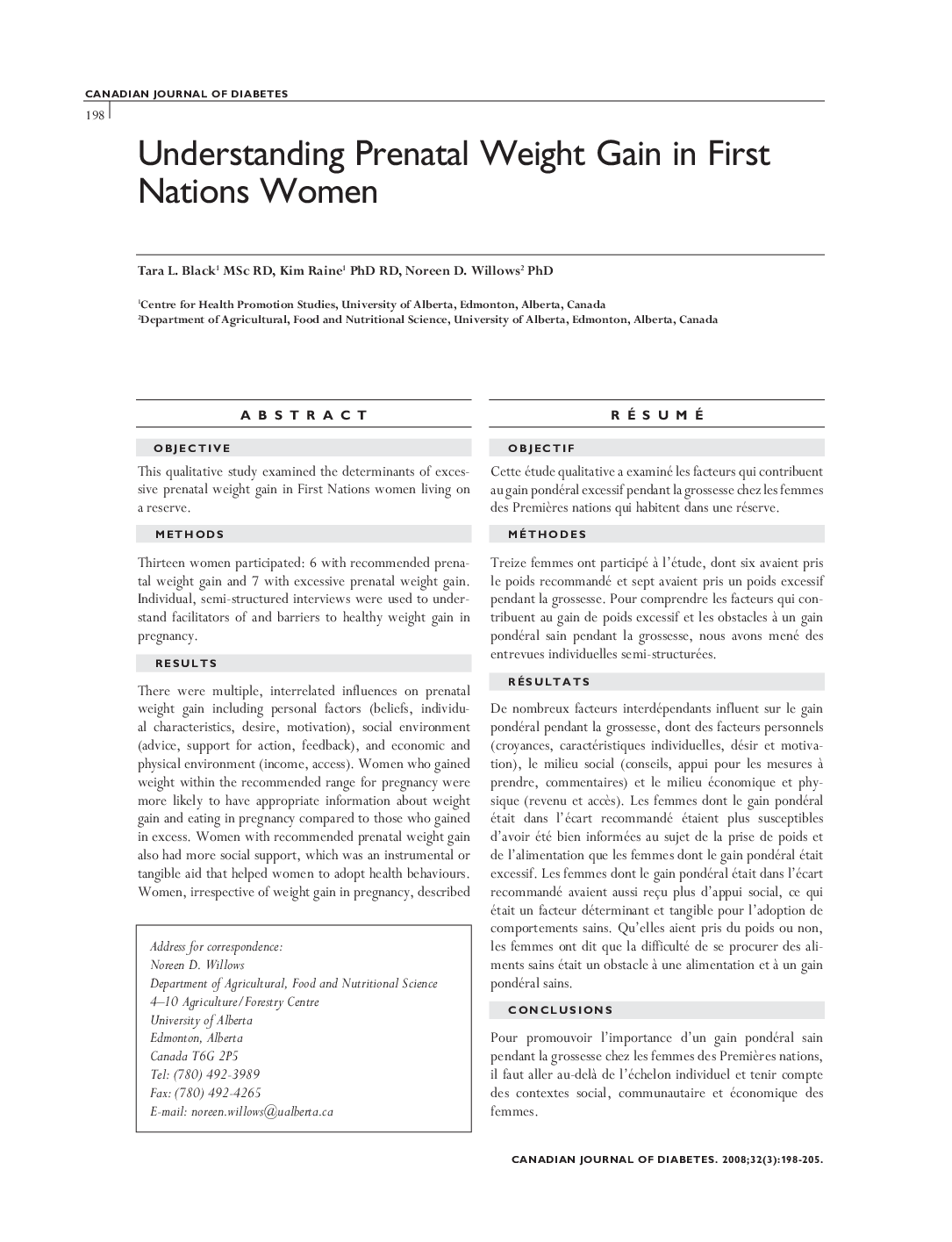| Article ID | Journal | Published Year | Pages | File Type |
|---|---|---|---|---|
| 3256433 | Canadian Journal of Diabetes | 2008 | 8 Pages |
ABSTRACTOBJECTIVEThis qualitative study examined the determinants of excessive prenatal weight gain in First Nations women living on a reserve.METHODSThirteen women participated: 6 with recommended prenatal weight gain and 7 with excessive prenatal weight gain. Individual, semi-structured interviews were used to understand facilitators of and barriers to healthy weight gain in pregnancy.RESULTSThere were multiple, interrelated influences on prenatal weight gain including personal factors (beliefs, individual characteristics, desire, motivation), social environment (advice, support for action, feedback), and economic and physical environment (income, access). Women who gained weight within the recommended range for pregnancy were more likely to have appropriate information about weight gain and eating in pregnancy compared to those who gained in excess. Women with recommended prenatal weight gain also had more social support, which was an instrumental or tangible aid that helped women to adopt health behaviours. Women, irrespective of weight gain in pregnancy, described the lack of access to healthy foods as a barrier to healthy eating and healthy weight gain.CONCLUSIONSEfforts to promote healthy prenatal weight gain in First Nations women must go beyond the individual level and include women's social, community and economic contexts.
RÉSUMÉOBJECTIFCette étude qualitative a examiné les facteurs qui contribuent au gain pondéral excessif pendant la grossesse chez les femmes des Premières nations qui habitent dans une réserve.MÉTHODESTreize femmes ont participé à l'étude, dont six avaient pris le poids recommandé et sept avaient pris un poids excessif pendant la grossesse. Pour comprendre les facteurs qui contribuent au gain de poids excessif et les obstacles à un gain pondéral sain pendant la grossesse, nous avons mené des entrevues individuelles semi-structurées.RÉSULTATSDe nombreux facteurs interdépendants influent sur le gain pondéral pendant la grossesse, dont des facteurs personnels (croyances, caractéristiques individuelles, désir et motivation), le milieu social (conseils, appui pour les mesures à prendre, commentaires) et le milieu économique et physique (revenu et accès). Les femmes dont le gain pondéral était dans l'écart recommandé étaient plus susceptibles d'avoir été bien informées au sujet de la prise de poids et de l'alimentation que les femmes dont le gain pondéral était excessif. Les femmes dont le gain pondéral était dans l'écart recommandé avaient aussi reçu plus d'appui social, ce qui était un facteur déterminant et tangible pour l'adoption de comportements sains. Qu'elles aient pris du poids ou non, les femmes ont dit que la difficulté de se procurer des aliments sains était un obstacle à une alimentation et à un gain pondéral sains.CONCLUSIONSPour promouvoir l'importance d'un gain pondéral sain pendant la grossesse chez les femmes des Premières nations, il faut aller au-delà de l'échelon individuel et tenir compte des contextes social, communautaire et économique des femmes.
